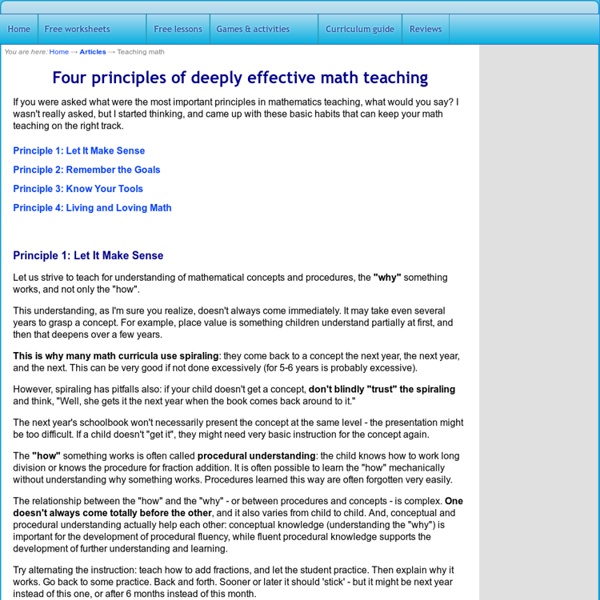Teaching math - four habits of highly effective math teaching

Chinese Mathematics Pedagogy and Practices: What Can We Learn?
by Annie Han November 2001 A number of cross-cultural studies have documented the apparent higher achievement in mathematics of Asian students as compared with students from other countries. By now, it is no secret that Asian students perform at a higher level in mathematics than do students in the United States, as indicated in such international comparisons as the Third International Mathematics and Science Study (TIMSS) and the National Assessment of Educational Progress (NAEP). The mathematics performance of students in the United States seems to be in decline, and mathematics education in the United States appears to be facing a crisis. Previous research has focused on cross-cultural student achievement; however, little research exists on the associated cross-cultural mathematics teachers' professional training and teaching practices. No one would disagree that mathematics is a primary source of lifelong learning or that it is related to the progress of civilization.
Related:
Related:



